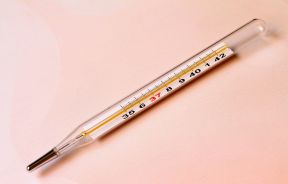Prescription Drugs From Canada? Not So Fast

Almost a month after President Donald Trump announced that states could begin importing drugs from Canada, pharmacists on both sides of the border don’t like what he’s prescribing.
Importing medications from Canada is part of the president’s America First Healthcare Plan to lower drug costs for Americans, especially older adults. The order, however, excludes some expensive biological drugs, including insulin.
“This will be a game-changer for American seniors,” the president said, according to Kaiser Family News. “We’re doing it very, very quickly.”
The new U.S. Department Health and Human Services’ (HHS) rule takes effect in 60 days.
Medications are cheaper in Canada
Prescription medicines are cheaper in Canada because the government limits what drug manufacturers can charge. And for years, Americans have crossed the border to buy medications from Canadian-regulated pharmacies.
In fact, roughly 4 million Americans already buy their medications from abroad, even though it is illegal. Kaiser Family News also reported that another 20 million say they or someone they know has imported medications from foreign countries because the cost is substantially less. The government generally looks the other way for personal use purchases.
The President’s plan
Under the president’s plan, a Canadian-licensed wholesaler would buy medications approved for sale in Canada from a pharmaceutical company, then export the drugs to a U.S. importer. The importer would contract with a state, which would then dispense the drugs to pharmacies.
The fly in the ointment, however, is that the Canadian government has said it doesn’t have the drugs to spare. And many Canadian pharmacists and distributors have pledged not to participate. Daniel Chiasson, president and CEO of the Canadian Association for Pharmacy Distribution Management, told Reuters that job one for his members is to ensure a safe and stable supply of medications for Canadians.
Loblaw Companies, Ltd, which owns Shoppers Drug Mart, one of Canada’s largest pharmacy chains, told Reuters it had not been contacted about participating and had no plans to.
Safety Not Guaranteed
South of the border, the American Pharmacist Association (APhA) has said that it opposes the president’s order for several reasons, safety being first and foremost.
“Nothing in the final regulation and other supporting documents that the FDA [Food and Drug Administration] published demonstrates that this can be done safely and will result in savings for patients,” Ilisa Bernstein, APhA’s senior vice president for pharmacy practice and government affairs, told Medical Daily.
The supply chain from Canadian wholesaler to the American pharmacy counter, Ms. Bernstein said, is fraught with opportunities for mischief. Drugs will change hands several times and may be relabeled and added to the importer’s supply chain, which includes drugs from other countries. It is possible, she said, that when you pick up your prescription, you won’t get the FDA-approved version, but a counterfeit drug.
The final HHS rule also mentions a second plan “in the future” that would allow pharmacists to import drugs directly from Canada.
“There is very little information HHS has given about that, and that poses even more significant risks,” Ms. Bernstein said. “You don’t know what you’re getting from the global supply chain. Most online drug sellers that present themselves as pharmacies are really rogue and buying drugs from the unregulated global market.”
It’s a complex issue
Ms. Bernstein said that lowering the cost of medication in the U.S. is a complex issue that will take a multipronged approach to resolve. In the meantime, the APhA will focus on working with states to mitigate risks as each state develops its proposals for buying drugs from Canada.
“Pharmacists want to protect our patients,” she said. “Whether the patient is in the U.S. or Canada, as pharmacists we are the last step before the patient can get that drug. It is really important that we are giving a high-quality product.”
Robert Calandra is an award-winning journalist, book author and playwright. His work has appeared in national and regional magazines and newspapers.
Published by Medicaldaily.com



























